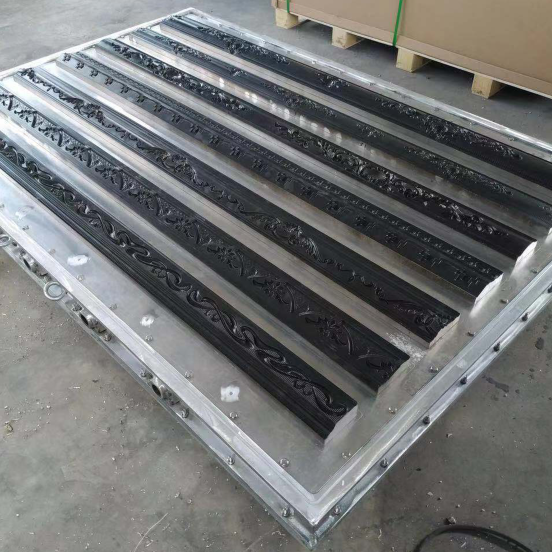Introduction to Icf Molds and Recycling Potential
Insulated Concrete Forms (ICF) have continued to gain popularity in the construction industry due to their superior insulation properties and durability. Primarily composed of Expanded Polystyrene (EPS) and concrete, ICF blocks serve as permanent building insulation, contributing to energy efficiency. However, as environmental sustainability becomes a critical focus in construction, the question of recycling ICF molds has emerged as a significant concern. This article examines whether ICF molds can be recycled, delving into the various aspects that influence their recyclability.
The Composition of ICF Blocks
ICF blocks are mainly constructed from EPS, a lightweight, foam-like plastic material. This material’s composition, during the manufacturing phase, involves the expansion and fusion of EPS beads into solid blocks. The layers of EPS provide insulation, while the core filled with concrete offers strength and stability. Understanding this composition is crucial in evaluating the recycling potential of ICF molds.
Characteristics of EPS
EPS is known for its closed-cell structure, which makes it lightweight and easy to handle. Its thermal resistance and moisture-resistant properties make it an ideal material in construction. However, these same properties can pose challenges in recycling, as traditional recycling methods may not be effective.
The Manufacturing Process of ICF Molds
The production of ICF blocks involves a precise molding process using ICF block molding machines. These machines expand and fuse EPS beads into solid forms, producing blocks tailored to specific construction needs. The ability to customize these blocks is essential for the diverse applications of ICF in construction.
Molding Efficiency and Precision
ICF molding machines are designed for high efficiency and precision, ensuring each block meets exact specifications. This consistency is crucial to the performance and reliability of ICF blocks. However, the high precision also implies that recycling efforts must meet comparable standards to reproduce quality materials.
Benefits of Using ICF Blocks in Construction
ICF blocks offer numerous benefits in construction, making them a popular choice among builders and architects. They provide exceptional insulation, structural strength, and energy efficiency, enhancing the sustainability of buildings.
Energy Efficiency and Insulation
ICF blocks significantly reduce energy consumption in buildings by maintaining consistent indoor temperatures. This energy efficiency leads to long-term cost savings and a reduced carbon footprint, aligning with sustainable construction practices.
Durability and Strength
The combination of EPS and concrete gives ICF blocks their remarkable strength and durability. Buildings constructed with ICF blocks can withstand extreme weather conditions, contributing to their longevity and reducing maintenance costs.
Challenges in Recycling ICF Molds
Despite the benefits of ICF blocks, recycling their molds presents several challenges. These challenges stem largely from the materials used and the current recycling technologies available.
Material Composition Challenges
The fusion of EPS and concrete in ICF blocks complicates the recycling process. Separating these materials without compromising their structural integrity requires advanced recycling techniques that are not widely available.
Technical Barriers
The existing recycling infrastructure may not be equipped to handle the specific requirements of ICF mold recycling. Innovations in technology and processes are needed to overcome these barriers and make recycling more feasible.
Current Recycling Practices for ICF Materials
Current recycling practices for ICF materials involve several steps aimed at maximizing material recovery and minimizing environmental impact. However, these practices are still in their infancy and require further development.
Collection and Sorting
ICF recycling begins with the collection and sorting of materials. This process is labor-intensive and requires careful handling to avoid contamination, which can hinder recycling efforts.
Material Reprocessing
After sorting, materials are subjected to reprocessing methods that aim to recover usable components. The reprocessing of EPS involves melting and reforming, while concrete may be crushed and repurposed.
Innovations in ICF Mold Recycling
Recent innovations are paving the way for more effective recycling of ICF molds. These advancements focus on improving material recovery and reducing the environmental impact of construction waste.
Advanced Recycling Technologies
New technologies are being developed to enhance the separation of EPS and concrete, allowing for more efficient recycling. These technologies aim to preserve the quality of materials, enabling them to be reused in new applications.
Sustainable Manufacturing Practices
Manufacturers are increasingly adopting sustainable practices in the production of ICF blocks. These practices include using recycled materials in the manufacturing process and designing products with recyclability in mind.
Economic Impacts of Recycling ICF Molds
The economic implications of recycling ICF molds are significant, presenting both opportunities and challenges for the construction industry.
Cost Savings and Revenue Opportunities
Recycling ICF molds can lead to cost savings by reducing material costs and waste disposal fees. Additionally, the sale of recycled materials can create new revenue streams for manufacturers and factories.
Investment in Recycling Infrastructure
To fully realize the economic benefits of recycling ICF molds, investment in recycling infrastructure is necessary. This includes developing facilities and technologies to support efficient material recovery and processing.
Environmental Benefits of Recycling ICF Molds
Recycling ICF molds offers several environmental benefits, contributing to a more sustainable construction industry.
Reduction in Construction Waste
Recycling ICF molds reduces the amount of construction waste sent to landfills, minimizing environmental impact and conserving landfill space.
Conservation of Natural Resources
By recycling materials, the demand for virgin resources is reduced, conserving natural resources and reducing the environmental footprint of manufacturing processes.
Conclusion: The Future of ICF Molds and Recycling
The future of ICF molds and their recycling potential is promising, with significant advancements in technology and sustainability practices. As the construction industry continues to prioritize environmental responsibility, the recycling of ICF molds will play an essential role in achieving sustainable building practices.
Dongshen Provide Solutions
Dongshen offers comprehensive solutions for the recycling of ICF molds. As a leading manufacturer in the industry, we focus on developing advanced recycling technologies and sustainable manufacturing practices. Our facilities are equipped to handle the specific challenges of ICF mold recycling, providing efficient and environmentally-friendly solutions. By choosing Dongshen, you support a commitment to sustainability and innovation in construction.

